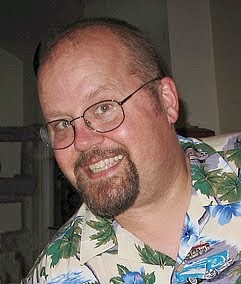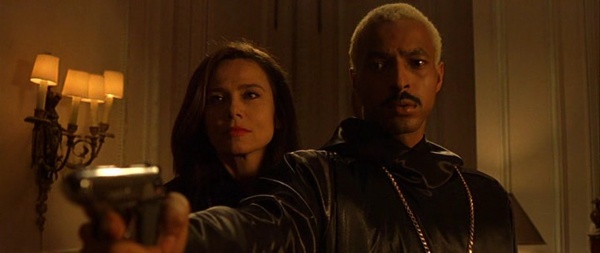The Devil, probably.
Roman Polanksi; just the name is a conversation killer. The facts that may or may not be true regarding the incident which occurred almost four decades ago has tainted Polanski’s reputation ever since. Still, he is a superlative director and his films will always be praised, even if he personally is not. When “The Ninth Gate” was released, Johnny Depp’s rise to super-stardom was just a few years away with the first entry in the “Pirates of The Caribbean” franchise. At to this point, Depp had still been doing more low-budget, indie films and quirky comedies. Despite his current status as one of the major actors in the world, I believe that the reason “The Ninth Gate” is rarely mentioned in articles or discussions about Depp’s career is due to the enduring infamy of Polanski’s name.
That
perpetual aura of mystery and potential evil enshrouding Polanski is also felt in every film he makes.
I have always been impressed by Polanski’s ability to
create a subtle but powerful feeling of fear, even during scenes that
take place amid normal surroundings in broad daylight. Every dark corner or shadowy nook seems to hide a
lurking threat, and “The Ninth Gate” is no
exception. The film is an adaptation of
a book called “The Club Dumas”, yet only tells one of several stories. Polanski has demonstrated a long-standing interest in the occult, so it
is no surprise to learn that the story Polanski has chosen concerns the search for
a book which was purportedly written by the Devil himself.
Johnny Depp plays Dean Corso, a successful albeit very amoral book dealer in New York, who is hired to authenticate a copy of “The Nine Gates of the Kingdom of Shadows.” This notorious tome is owned by a wealthy publisher named Boris Balkan. Balkan is played by Frank Langella, who evokes much of the debonair flair that made his 1979 performance of Dracula so celebrated. As Corso begins his quest to research Balkan’s copy of the infamous book, he begins to feel that something sinister is following him and watching his every move.
The sense of mounting dread in “The Ninth Gate” rises as inexorably as a night tide. As Corso’s journey unfolds, two people continually appear and dog his footsteps. One is a young black man with a close-cropped, bleached blonde afro, the other is a strikingly beautiful young woman with mismatched socks. While these character's motivations are different, the fate of everyone is bound to the book which Corso carries with him. In comparing his copy of "The Nine Gates" to the other remaining volumes, Corso suspects that a long-forgotten secret is about to be re-discovered, and the key may lie in the engravings in each book. People around Corso begin to die, and his icy composure slowly gives way to panic as he senses that a great evil is waiting to be unleashed.
When Corso is assaulted in a robbery attempt, the blonde girl with the mismatched
socks appears and saves his life. She becomes
Corso’s protector, and ensures that his research can continue. Her evasive answers to Corso’s questions keep him and the audience in the dark about her true motives.
Though there is
little action, what happens is almost always shocking and provocative for what
it suggests about the true nature of the characters. Is the supernatural real, or is
it just a creation of our imagination?
“The Ninth Gate” gives tantalizing suggestions, but thankfully never goes completely overboard in its visual
depictions. Like “The Exorcist”, this
film doesn’t paint in broad strokes.
We only see things which could actually occur, no bogeyman or
spirit erupts in all its CGI glory to spoil the sophisticated suspense.
If you are the kind of viewer who prefers a clear-cut ending in order to be satisfied, you may not enjoy this film. A great part of the appeal of “The Ninth Gate” is that it only shows enough to suggest what may be happening. We do see things that could be supernatural, but it could also be that we are seeing these things through the eyes of the main character. “The Ninth Gate” challenges us to doubt everything we see and think about the world around us. Is there, in fact, a spiritual veil over our eyes that we can remove if we so desire? Is knowledge worth gaining for its own sake despite the risk of fiery damnation, or is ignorance a better choice if it makes feel us safe and surrounded by the warm light of day? “The Ninth Gate” does not answer these questions, but it does suggest that there are many doors to perception that may be opened, but depending on your choices you may not be prepared for the fate that awaits you.









No comments:
Post a Comment